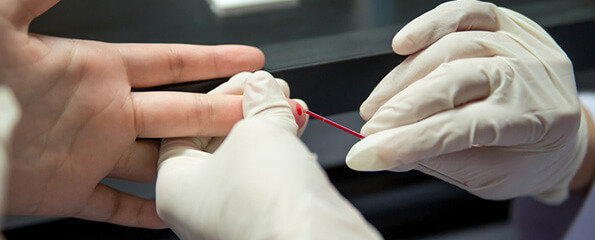Home HIV tests in Australia
Home-testing kits for Human Immunodeficiency Virus (HIV) should be approved for use across the country to address the increase in cases among those born in sub-Saharan Africa and South East Asia, new research led by Curtin University has found.
The report, Barriers to HIV testing among people born in sub-Saharan Africa and South East Asia, explores the barriers to HIV testing among people born in both regions to better understand the reasons for late diagnoses.
Lead author Ms Corie Gray, from the School of Public Health at Curtin University, said people born in sub-Saharan Africa and North East and South East Asia have consistently recorded the highest rates of HIV diagnoses in Australia by region of birth.
“Over the past decade, there has been an increase in the number of HIV notifications among people born in sub-Saharan Africa and North East and South East Asia,” Ms Gray said.
“Just under half of these HIV notifications occur at a late stage, or more than four years after HIV has been acquired, meaning early diagnosis is critical to ensuring people receive the most effective treatment and support.”
Ms Gray said the research identified various barriers to accessing HIV testing, including a lack of awareness of at-risk groups or a fear of offending patients among GPs, patients not requesting tests, language or cross-cultural difficulties and HIV-related stigma.
“Through this research, we have made recommendations aimed at addressing these barriers including home-testing kits being approved for use in Australia by the Therapeutic Goods Administration, universal access to HIV testing for Medicare ineligible people living with HIV, and expanding the availability of rapid HIV testing beyond gay and bisexual men,” she said.
“The research also recommends encouraging more positive conversations about HIV and regular testing in the community to address the stigma, encouraging GPs to offer HIV testing as part of general health-check-ups, pop-up testing sites, and ensuring international students are provided the relevant information.”
The research was based on interviews with 11 GPs and 11 focus groups with 77 participants across four Australian states who were born in various countries including Indonesia, Malaysia, South Sudan and Somalia.
(Source: Curtin University)
Dates
Tags
Created by:

 Login
Login














